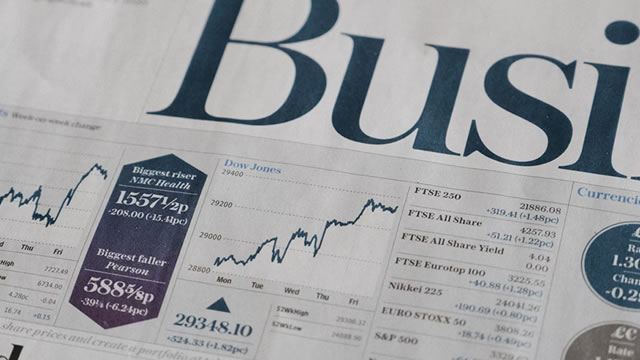Early Market Indices: A Mixed Bag Amidst Anticipation for US Inflation Data
As the sun rises on the Eastern seaboard of the United States, the financial markets continue to display a somewhat mixed performance in the early hours of Wednesday. The Dow Jones Industrial Average (DJIA) and the S&P 500 have seen minimal changes, while the Nasdaq Composite has experienced a slight decline.
Dow Jones Industrial Average: Treading Water
The Dow Jones Industrial Average, which represents 30 of the largest and most influential companies in the US economy, has shown a negligible change, hovering around the 34,800-mark. Companies such as Apple, Microsoft, and Visa are contributing to the index’s stability, offering a glimmer of hope for investors.
S&P 500: A Breath of Fresh Air
The S&P 500, an index tracking the stock performance of 500 large companies in various industries, has remained relatively unchanged, with a slight variation from its previous day’s close. The tech sector, which has been a significant contributor to the index’s growth in recent months, continues to show resilience.
Nasdaq Composite: A Slight Dip
The Nasdaq Composite, which is heavily weighted towards technology stocks, has seen a slight dip, with a decrease of approximately 0.2%. This decline could be attributed to investors taking profits or adjusting their portfolios in anticipation of upcoming economic data.
Inflation Data: The Elephant in the Room
The markets’ hesitant performance can be largely attributed to the upcoming release of the US Consumer Price Index (CPI) data, which is expected to provide insight into the current state of inflation. A higher-than-expected CPI could lead to increased interest rates, potentially causing a sell-off in the markets.
Impact on Individuals
For individual investors, this volatility can be a double-edged sword. While it may present opportunities to buy stocks at lower prices, it can also lead to uncertainty and potential losses. It is essential to keep a long-term perspective and consider diversifying your portfolio to mitigate risk.
- Consider rebalancing your portfolio to maintain a healthy allocation of stocks, bonds, and cash.
- Keep an eye on your favorite stocks and be prepared to take advantage of potential dips in price.
- Consider seeking advice from a financial advisor to help navigate market volatility.
Impact on the World
On a larger scale, the markets’ performance and the upcoming inflation data can have far-reaching implications. Central banks, including the Federal Reserve, may adjust monetary policy in response to inflation data, which could impact the global economy.
- Central banks may raise interest rates to curb inflation, potentially slowing economic growth.
- Inflation can lead to higher prices for goods and services, affecting consumers and businesses alike.
- Market volatility can impact investor confidence and potentially lead to a broader economic downturn.
Conclusion: Navigating Market Volatility Amidst Uncertainty
The markets’ early performance on Wednesday, coupled with the upcoming US inflation data, highlights the importance of staying informed and maintaining a long-term perspective. While market volatility can be unsettling, it also presents opportunities for savvy investors. By staying informed, diversifying your portfolio, and seeking professional advice, you can navigate market uncertainty and position yourself for long-term success.
As the markets continue to evolve, it is crucial to stay informed and adapt to changing conditions. Keep an eye on economic data and market trends, and don’t hesitate to consult with a financial advisor to help you make informed decisions. In the words of Warren Buffett, “Only when the tide goes out do you discover who’s been swimming naked.”





